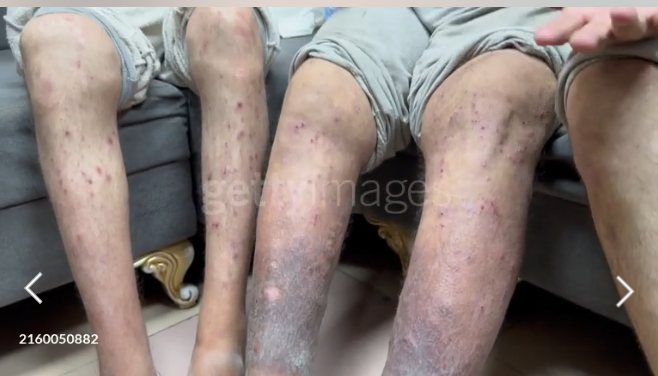Palestinians Freed by Israel Display Signs of Abuse, Malnutrition, and Trauma
Introduction
Recent reports indicate that Palestinian detainees released by Israel have exhibited alarming signs of physical abuse, malnutrition, and psychological trauma. These revelations have sparked international concern and raised questions about the treatment of prisoners while in Israeli custody. This article delves into the various aspects of these allegations, exploring their implications on human rights and international law.
Physical Signs of Abuse
Numerous freed Palestinian detainees have described experiences of physical mistreatment during their imprisonment. Reports suggest that many individuals bore visible bruises, scars, and other injuries consistent with beatings and harsh treatment. Some former prisoners have spoken about prolonged isolation, physical assaults by prison guards, and being restrained in stress positions for extended periods. Such allegations have prompted human rights organizations to demand an independent investigation into the conditions within Israeli detention facilities.
Malnutrition and Poor Living Conditions
Malnutrition is another major issue that has surfaced among recently freed detainees. Many former prisoners have reported significant weight loss, weakness, and signs of prolonged food deprivation. Accounts suggest that meals provided in prison were inadequate both in quantity and nutritional value. In some cases, detainees claimed they were deliberately given food lacking essential nutrients, contributing to long-term health problems. These conditions not only violate basic human rights but also contravene international standards for the treatment of prisoners.
Psychological Trauma and Mental Health Struggles
Beyond the physical toll, many freed Palestinian detainees exhibit signs of severe psychological distress. Former prisoners have reported symptoms of post-traumatic stress disorder (PTSD), anxiety, depression, and other mental health issues. The harsh conditions, coupled with extended solitary confinement and the constant fear of violence, have left lasting psychological scars. Mental health professionals working with released detainees emphasize the urgent need for psychological support and rehabilitation to help them reintegrate into society.
Testimonies from Released Detainees
Firsthand accounts from former prisoners paint a grim picture of their time in detention. Many have spoken of sleep deprivation tactics, extreme cold or heat exposure, and verbal abuse aimed at breaking their morale. Others have recounted instances of forced confessions extracted under duress. The consistency of these testimonies suggests systemic mistreatment rather than isolated incidents, further fueling calls for accountability.
International Reaction and Calls for Investigation
The global response to these revelations has been strong, with various human rights organizations and international bodies urging Israel to allow independent investigations into prison conditions. The United Nations and the Red Cross have expressed concern over the allegations, emphasizing the importance of upholding international laws regarding prisoner treatment. Several governments and advocacy groups have called for greater transparency and oversight to ensure detainees’ rights are respected.
Israel’s Response to Allegations
Israeli authorities have denied accusations of widespread abuse, asserting that all prisoners are treated in accordance with legal and ethical standards. Officials have argued that detention centers operate under strict regulations and that any misconduct by prison personnel is subject to investigation. However, critics argue that the lack of independent oversight and restricted access to detainees raise doubts about the credibility of these claims.
The Broader Impact on Palestinian Society
The effects of these alleged abuses extend beyond individual detainees, impacting Palestinian society as a whole. Families of prisoners suffer immense emotional distress, often enduring long periods without communication or visitation rights. Additionally, the reintegration of traumatized individuals into their communities presents challenges, as many struggle to rebuild their lives after their harrowing experiences. The long-term consequences of such mistreatment could further exacerbate tensions in the region.
Conclusion
The accounts of abuse, malnutrition, and psychological trauma among Palestinians released from Israeli detention highlight serious concerns regarding the treatment of prisoners. These allegations warrant thorough and impartial investigations to ensure accountability and prevent future mistreatment. As international scrutiny intensifies, the need for transparency and adherence to human rights standards remains more crucial than ever. Addressing these concerns is essential for fostering justice, upholding human dignity, and working towards a lasting resolution to the Israeli-Palestinian conflict.


Leave a Comment